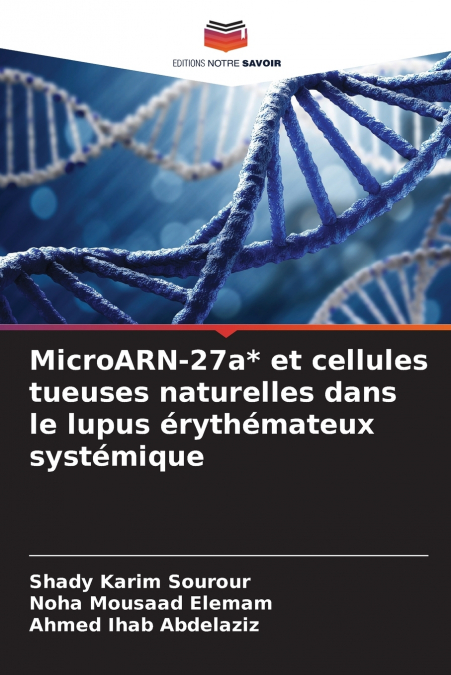
Ahmed Ihab Abdelaziz / Noha Mousaad Elemam / Shady Karim Sourour
Le lupus érythémateux systémique (LES) est une maladie auto-immune chronique caractérisée par la production aberrante d’anticorps auto-réactifs, entraînant diverses manifestations cliniques. Les cellules tueuses naturelles (NK), la troisième plus grande population de lymphocytes, contribuent dans une large mesure à la pathogenèse du LED. Les miARN sont de petites molécules d’ARN non codantes qui jouent un rôle essentiel dans la régulation de l’expression des gènes NK par le biais de mécanismes post-transcriptionnels ; cependant, cela n’a jamais été étudié auparavant dans le cadre du LED. Ce travail visait donc à étudier l’expression des miARN qui pourraient potentiellement cibler un récepteur activateur essentiel de la NK, NKG2D, dans les cellules mononucléaires du sang périphérique (PBMC) et les cellules NK de patients atteints de LED. Les anomalies observées dans l’expression de la triade ' miR-27a*, NKG2D et ULBP2 ' sont considérées comme des aspects vitaux dans le décryptage de l’altération de la cytotoxicité caractéristique des cellules NK chez les patients atteints de LED. De plus, le mimique miR-27a* a été capable d’augmenter l’expression de NKG2D et peut donc fournir une nouvelle base pour des interventions thérapeutiques ciblant les cellules NK chez les patients atteints de LED. Ces travaux ont été publiés dans l’International Journal of Rheumatic Diseases en mai 2017.